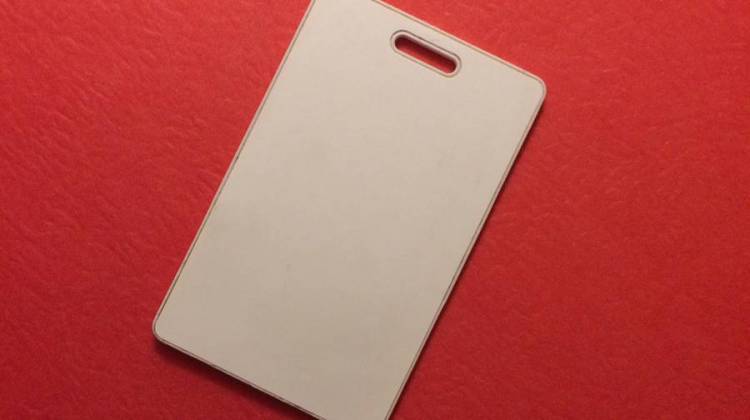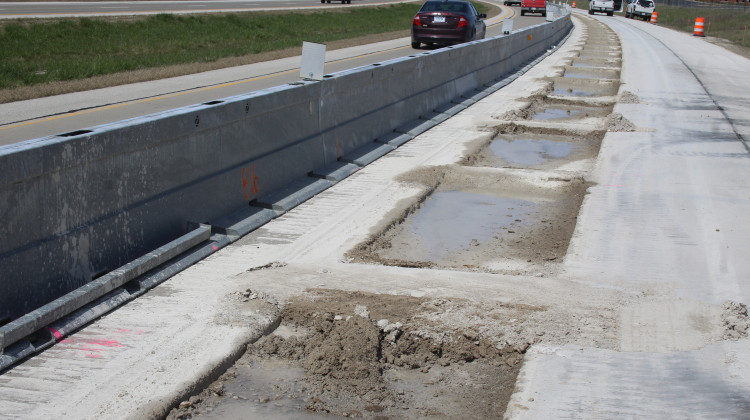The founder of Hoosier Security, Armando Perez, is warning companies to check their building access systems. Perez says after reading industry reports about access cards being cloned, he purchased an inexpensive device online like the thieves use to do some tests for himself.
“What I was hoping to find is that the encryption on the cards we had been using was strong enough that it wouldn’t be copiable – because it’s proprietary it would be exempt from this," Perez says. "However, what we found is just like every other 125 kilohertz credential out there, it is susceptible and vulnerable from being copied a couple of feet away even,” he says.
The access cards work with radio frequencies and Perez says the thieves don’t even have to touch the cards.
“It’s very common for employees to carry cards on a keychain on their belt loop or on their ID on their shirt -- or any one of other multitude of things," Perez says, "even in their wallet. And if somebody can get within a couple of feet, they can gain access to everything you can gain access to.”
Hoosier Security no longer uses low frequency cards and Perez says he's helping his customers bypass the cloning vulnerability without having to purchase all new systems.
He says a recent survey by Brivo, a security company in Maryland, shows the low frequency systems still garner more than half the market. Perez says marketing materials from the access card manufacturers would lead you to believe the 125 kilohertz systems are encrypted and safe. That’s why he’s sounding the alarm and wants others to know the risks.
 DONATE
DONATE







 View More Programs
View More Programs

 Support WFYI. We can't do it without you.
Support WFYI. We can't do it without you.